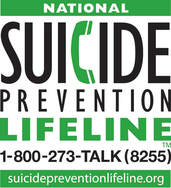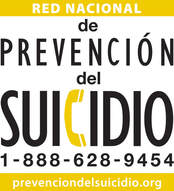PART I: NOWHERE NEAR MANIA
SUMMARY: Irritability and anxiety are not mania. Time course is months to years, not hours or days. Most mood-stabilizers cause weight gain, sedation, and all have potentially toxic side effects, some of which can be permanent. They do not help anxiety, irritability or tearfulness.
PART II: TRUE MANIA
SUMMARY: A syndrome of psychomotor agitation, characterized by an elevated mood with increased energy, and usually including copious and rapid, even pressured, speech and varying degrees of a formal thought disorder. Other common features include impulsivity, expansiveness, and increased goal-directed activity, with a markedly decreased need for sleep. Impulsivity can include spending large sums of money, or unwarranted generosity. Often, symptoms of grandiosity, and sometimes hypersexuality and other thrill-seeking, high-risk behaviors, are present. It is a marked deviation from an individual's baseline, sustained for weeks, months or years (without treatment), and in the minority of cases includes mood-congruent psychotic symptoms, especially grandiose paranoia. Individuals are often non-adherent with their medications, because many enjoy their mania, despite the fact that severe mania is disruptive and can even be dangerous, and is never sustained indefinitely and will eventually lead to a major depressive episode; manic episodes often terminate in rebound depression. Stimulant abuse must always be considered first, and ruled out, although substance use disorders often co-exist with Bipolar Disorder. Hypergraphia/graphomania, and hyperspirituality, when present, are pathognomonic of mania, as is frank psychomotor agitation that includes pressured speech, coupled with a markedly decreased need for sleep, although there are numerous etiologies for frank mania beyond actual Bipolar Disorder (most commonly, Stimulant-Induced Mania). Hypomania, characterized by a lesser degree of manic symptoms, can be subtle and difficult to discern, and yet "Type 2 Bipolar Disorder," which is defined as major depressive episodes alternating with hypomanic episodes, is also over-diagnosed in individuals who do not truly experience any degree of mania. Individuals experiencing mania are not always elated; manic and hypomanic episodes can be dysphoric and irritable, and mixed episodes, in which both depressive and manic symptoms co-occur, are often confused with rapid-cycling. Rapid-cycling Bipolar Disorder, which is actually uncommon, is especially over-diagnosed, again, particularly in those individuals who have been misdiagnosed and who do not suffer from any kind of bipolar spectrum disorder.
PART III: DIAGNOSTIC PEARLS
SUMMARY: A family history of "Bipolar Disorder" is rarely unequivocal or conclusive, as blood relatives are subject to the same prevalence of misdiagnosis. There is usually not enough evidence, or even sufficient facts, to conclude that a first-degree relative suffered from true manic-depressive illness without the opportunity to evaluate and question that individual directly, and/or review hospital records, which are typically unavailable. So-called "manic" periods or "racing thoughts" reported by the vast majority of outpatients to their mental health providers are misnomers. Practitioners must always ask individuals to clarify what they mean when patients use jargon, and ask specific follow-up questions about the exact nature, intensity, and especially the duration, of the putative bipolar symptoms, as well as the context in which they occur, the presence or absence of any triggering environmental factors, and the degree of insight during those episodes, which is typically low or absent in individuals with true Bipolar Disorder, particularly those who enjoy their mania or who have never, or only recently, been diagnosed. Understanding the epidemiology of Bipolar Disorder and considering patient demographics can help to differentiate idiopathic or familial Bipolar Disorder (true BPD), from other conditions which can result in bona fide mania, which not only include Stimulant Use Disorder, but many other mania-inducing substances and medications, such as steroid medications, as well as other neurologic conditions and central nervous system injuries. Extreme, well-circumscribed episodes of persecutory psychosis in the absence of pervasive and prolonged psychomotor agitation indicates a stimulant-induced brief psychotic episode, not psychosis due to a major mood disorder, and is unmistakable in its presentation; it can be presumed even in individuals with confirmed Bipolar Disorder, and even given a negative urine drug screen. Hair-follicle testing is more sensitive and can detect covert cocaine and other stimulant abuse over a period of several months, but even those tests yield false-negative results if the drug of abuse is one of hundreds of newer, widely-available synthetic compounds manufactured in clandestine labs whose chemical structures do not react with standard tests for cocaine, amphetamines or methamphetamines. False-positive results are possible, except in cases of cocaine abuse: a confirmed positive test for cocaine is always attributable to cocaine, never to a confounding medication or other benign substance.







